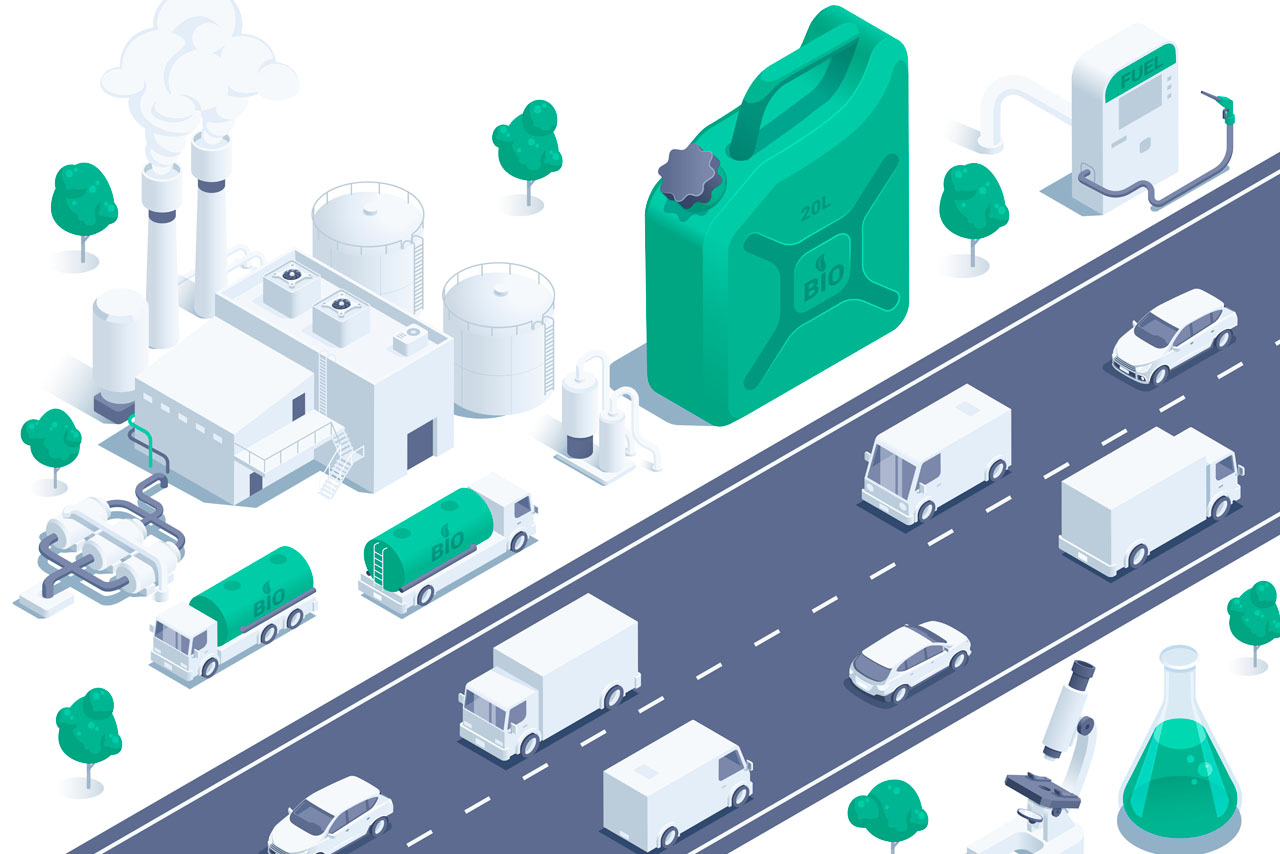Biofuels, derived from organic materials such as crops, algae, and waste, have emerged as a sustainable alternative to conventional fossil fuels. In the context of the EMEA (Europe, Middle East, and Africa) region, their significance cannot be overstated. These liquid or gaseous transport fuels offer a renewable solution to mitigate our carbon footprint and enhance energy security.

Biofuels for EMEA: Navigating trends and digital transformation
Biofuels, derived from organic materials such as crops, algae, and waste, have emerged as a sustainable alternative to conventional fossil fuels. In the context of the EMEA (Europe, Middle East, and Africa) region, their significance cannot be overstated. These liquid or gaseous transport fuels offer a renewable solution to mitigate our carbon footprint and enhance energy security.
As per Statista, Europe produces more biofuels than any other region, including biodiesel and ethanol. In 2021, the EU produced 14.9 million tonnes of oil equivalent (mtoe) of biogas, which was a 1.7% increase from 2020. In 2022, Germany produced the most biofuels, at 62,000 barrels per day, while France produced 39,000 barrels per day.
With more such information, this blog will delve into the current trends shaping the biofuel market in the EMEA region. Additionally, we also explore prospects and the transformative impact of digital solutions.
Current trends in the EMEA biofuel market
According to LinkedIn, the biofuels and biodiesel market will have a consistent and positive growth direction from 2024 to 2030, supported by several factors such as increasing consumer demand, advancements in technology, and shifting consumer preferences. The global “Biofuels and Biodiesel Market” report indicates a consistent and robust growth pattern in recent times, which is expected to continue positively until 2030.
-
- EMEA Region projected growth
Presently, biofuel demand in the EMEA region is projected to grow significantly. The IEA has mentioned that, from 2021 to 2026, global demand for biofuels is expected to increase by 41 billion liters, representing a substantial 28% growth. This expansion is driven by several factors, including government policies and overall transport fuel demand.The robust biofuel policies in emerging economies, particularly in countries like Brazil, Indonesia, and India, are contributing to increased demand. These policies encourage the adoption of biofuels and create a favorable environment for their production and utilization. As a result, the EMEA region is witnessing a surge in biofuel production, surpassing that of Europe during the forecast period.
- Biodiesel, Renewable Diesel, and Biojet Expansion
Biodiesel, renewable diesel, and biojet fuels have experienced remarkable growth beyond their 2019 levels. In 2021, these biofuels expanded by 15%, which is equivalent to a staggering 7 billion liters compared to the levels observed in 2019.Notably, the surge in renewable diesel demand in the United States and the increasing appetite for Asian biodiesel were the primary catalysts behind this impressive expansion.
With more demand, countries and enterprises across the world are tapping into different technology to enhance their competitiveness and effectiveness.
- EMEA Region projected growth
Digital transformation
The global “Biofuels and Biodiesel Market” report also indicates the rising incorporation of technology to elevate both the quality and efficiency of products. State-of-the-art technologies such as artificial intelligence, machine learning, and blockchain are being harnessed to create innovative products that surpass conventional options in terms of both effectiveness and efficiency.
- Supply Chain Optimization: Digitization plays a pivotal role in supply chain optimization for CTRM processes in the biofuel industry. They provide real-time data visibility into inventory levels, production, and logistics. Biofuel companies can make informed decisions based on accurate data, minimizing delays and stockouts. By helping analyze historical data, digitized systems can predict demand fluctuations, supply shortages, and market trends. Digitization streamlines manual processes. Automated workflows handle routine tasks such as order processing, invoicing, and inventory management. This reduces human error, speeds up operations, and ensures consistency. Digitization also aids by providing Internet of Things (IoT) sensors to monitor temperature, humidity, and location during transportation. RFID tags enable real-time tracking of biofuel shipments, improving logistics efficiency.
Cloud-based collaboration tools connect suppliers, manufacturers, and distributors. Biofuel stakeholders can share information, coordinate activities, and resolve issues promptly. Digitization optimizes energy usage in production and transportation. Biofuel companies can reduce costs and environmental impact. In short, digitization empowers biofuel supply chains by enhancing visibility, efficiency, and sustainability.
- Cloud solutions: Cloud solutions can significantly enhance CTRM processes in the biofuel industry. They allow biofuel companies to scale their CTRM systems seamlessly. As production capacity grows, the cloud can accommodate increased data volume, transactions, and users.
Biofuel firms can adapt their CTRM solutions to changing business needs without significant infrastructure investments. Cloud services provide flexibility to adjust resources as required. Cloud solutions also are cost-effective as they operate on a subscription model, reducing capital expenditures. Companies pay only for the resources they use, making it cost-effective. Cloud CTRM systems enable remote access from anywhere with an internet connection. This is crucial for biofuel companies with distributed teams, suppliers, and customers. Users can collaborate, analyze data, and execute trades seamlessly across geographies. Cloud platforms facilitate data integration by connecting various systems (trading, risk management, logistics, etc.). Real-time data synchronization ensures accurate decision-making. Advanced analytics tools can process large datasets, providing insights into market trends, risk exposure, and profitability.
Reputable cloud providers invest heavily in security measures. They offer encryption, access controls, and compliance certifications (such as ISO 27001). Biofuel companies benefit from robust security protocols without the burden of managing their own infrastructure. They also include automated backups and disaster recovery options. In case of system failures or data loss, recovery processes are streamlined. Furthermore, Cloud platforms support high-frequency trading and algorithmic strategies.
Companies can deploy computational resources as needed. Biofuel firms can optimize trading algorithms, execute trades faster, and respond to market fluctuations promptly.
- Blockchain: This trending technology can be a crucial help for biofuel industry in the EMEA region. Blockchain provides an immutable and transparent ledger where every transaction is recorded in a secure and tamper-proof manner. This means that the entire supply chain can be accurately tracked and verified. Participants in the industry can access real-time information about the origin, quality, and movement of biofuels, ensuring transparency and accountability. Furthermore, blockchain technology can prevent frauds and increase efficiency by engaging automation.
Conclusion
Biofuels are not only a bridge to a greener future but also a vital component of our energy landscape. As the EMEA region embraces innovation and sustainability, digital solutions will be the game changer, propelling biofuels toward a cleaner and more resilient future.
Other resources

Petroleum derivatives and biofuels major streamlines fuel trading and risk operations with Eka’s cloud driven ETRM solution
The customer is a petroleum derivatives and biofuels magnate from Brazil with more than 8,000 gas stations across the country.

Leader in biofuels implements scalable cloud-driven Eka CTRM solution
This North American biofuel magnate is reaching new peaks with its commitment to a cleaner energy future.